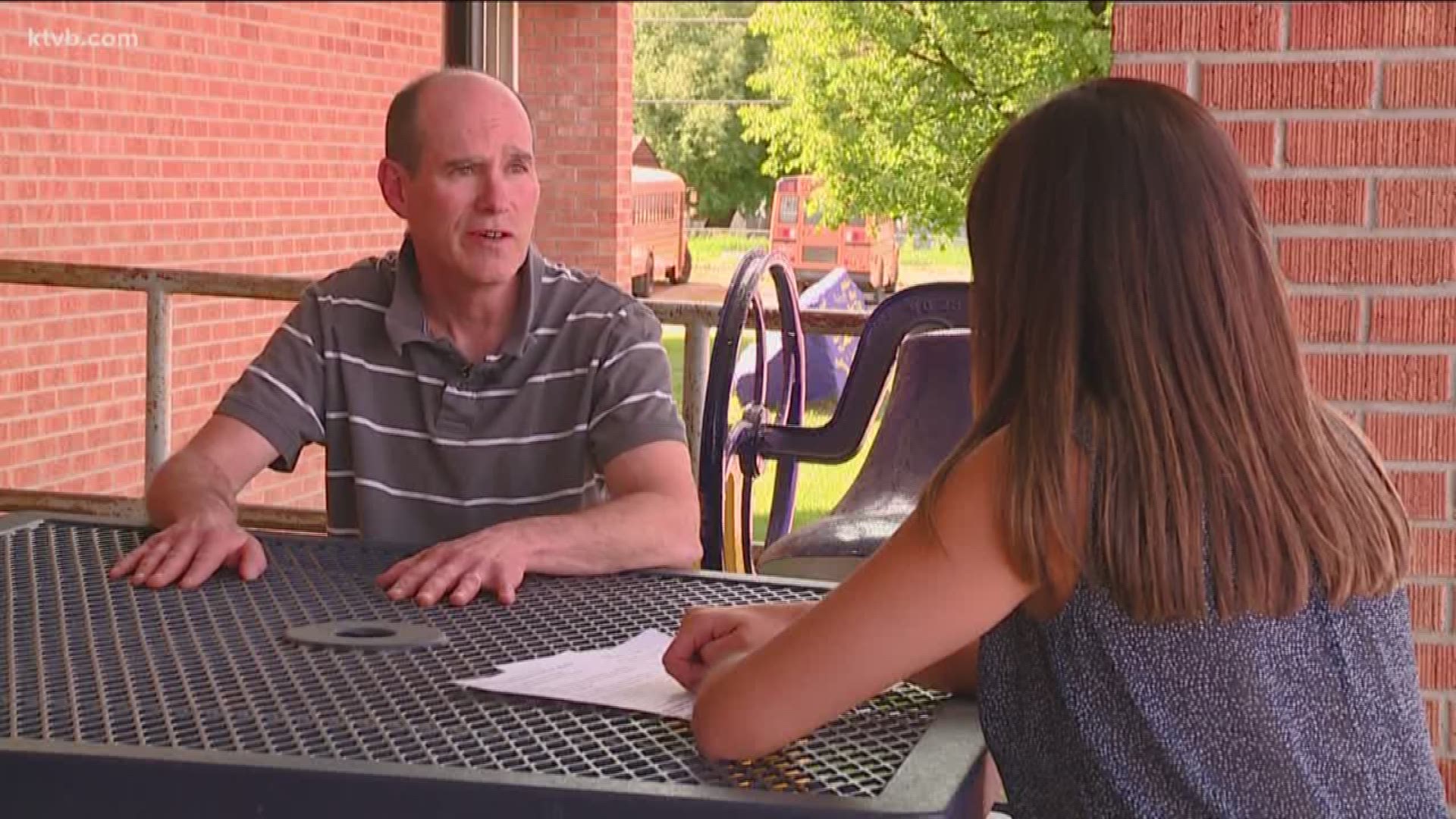CASCADE, Idaho -- A scenario rural school districts across the state are dealing with is playing out in the mountain town of Cascade.
As the school district struggles with funding and dwindling enrollment, they're left to make cuts in staff and resources. Last week, the Cascade School District announced they were going to have to cut four positions; they said they were going to leave two positions vacant (two teachers are leaving the district) and lay off two other teachers - what is known as a Reduction in Force (RIF) to save money and get out of deficit spending.
But to ensure nobody had to lose their job, two tenured staffers stepped up - helping close the budget gap. Educator, technology director, and bus driver, Chris Hinze, and English and drama teacher, Roni Rankin, have been with the district for more than three decades. They are now making a sacrifice and set to take retirement early.
"The school has been a big part of my life for 31 years and it's hard to just process that it's about to end," Chris Hinze said. "It has really been a strange three weeks - actually three weeks ago today I found out that there was a proposed Reduction in Force. At that time I was thinking I might be retiring at the end of next year but I hadn't really firmed up that plan. And I find myself three weeks later committed to an early retirement and I’m not really sure exactly what I am going to do as a retiree, so it is a little bit stressful in that regard."
He's been fighting for his fellow teachers as negotiator for the teachers' union, the Cascade Education Association. Now Cascade Schools' technology director is taking it upon himself to help close a budget gap and save his colleagues' jobs.
"There’s a lot of gratitude which makes it easier, I appreciate that. There really was a lot of tension because people really didn't have a good handle of who was vulnerable to being reduced. There were just lots of teachers wondering if they were going to have a job next year," Hinze told KTVB.
Hinze and his colleague were close to retirement. They separately decided to put in offers with severance pay to hang up their hats early. Hinze says the Cascade School District Board of Trustees moved to accept their proposals during a meeting on Monday.
"There is a rule called the 'total of 90' and you get full retirement benefits if your age plus experience adds up to 90. That is what I would have hit at the end of next year," Hinze said. "It is going to set us back financially to take this early retirement."
"The severance amount is less than what our salaries would be so [the district] realizes some savings next year. But the severance payments are going to have to come out of the budget. And then the following year is when they get the most savings because the severance payments have been made," he added.
"It is really difficult thinking about the teachers that aren't going to be here next year because they really did make a huge sacrifice for the rest of us who may or may not of lost their jobs," Cascade Education Association president Adam Mapp said.
Mapp views this as the district buying out their most talented people.
"I hope that in the future our school will improve because it will be on financial footing and everything will stable out, or stabilize. All I can think of is we are just selling off some of our best assets," Mapp told KTVB.
But these staff members' buyouts will help save the district money. Cascade's fund balance is decreasing, as they operated in a $400,000 deficit this year.
As the district works to balance its budget, we are told cuts will happen across the board - from nixing the art and music programs to not buying new supplies or sports equipment.
"I don’t think the school district is out to get anybody. They are doing the best they can with what they have. And what they have is very little," Mapp told KTVB.
The district is also planning to run a $100,000 emergency property tax levy in August to help close the gap.
"The state is going to have to figure out something for rural schools, otherwise we are going to see a trend where these smaller schools are going to start closing," Mapp said.
Viable schools that provide a good education are vital to small, rural communities' economies in Idaho, Mapp and Hinze say. Ultimately, they know it's students' educations and experiences that are taking the biggest hit.
"It is going to be difficult to get that college - and career-ready education out there," Hinze said.
"Losing those positions even for a year is going to be hard on our students," Mapp added.

